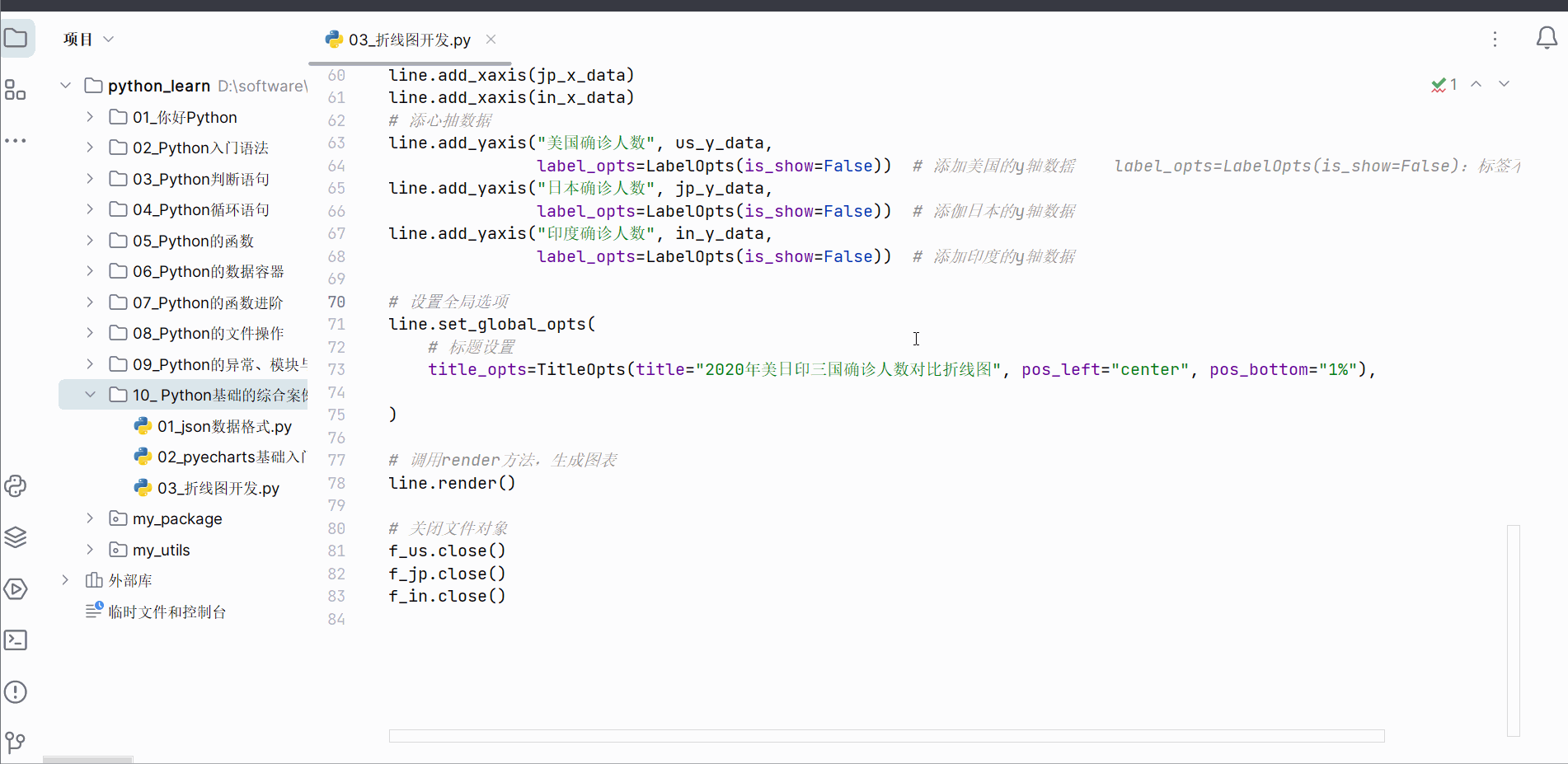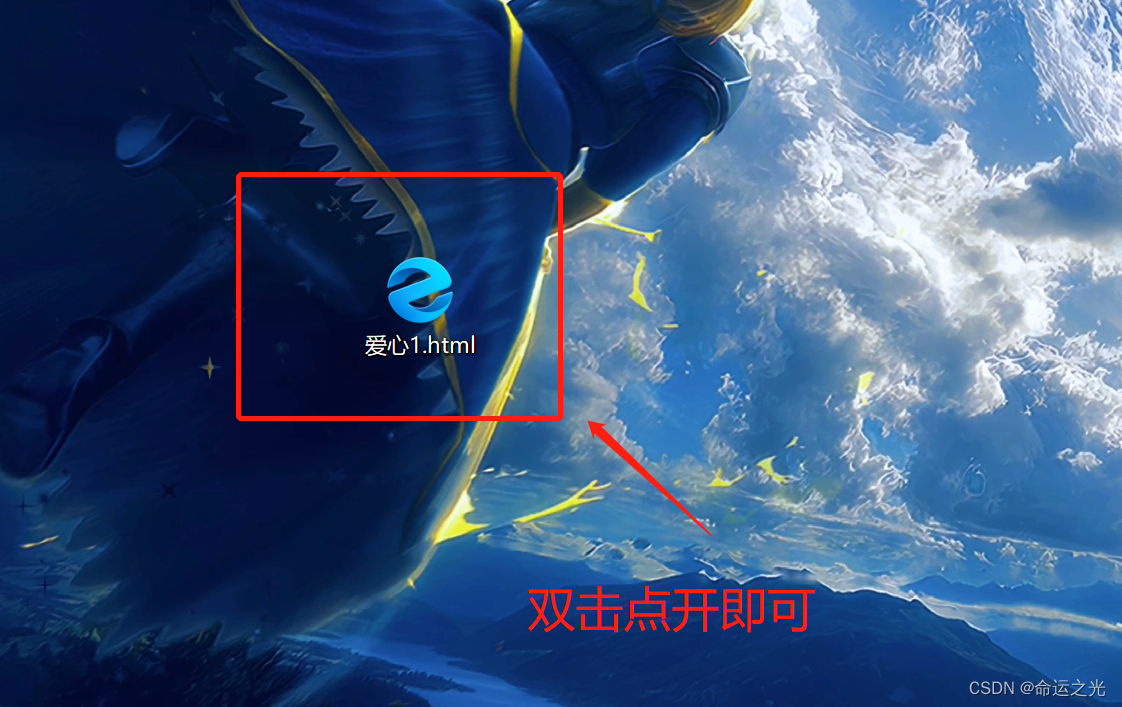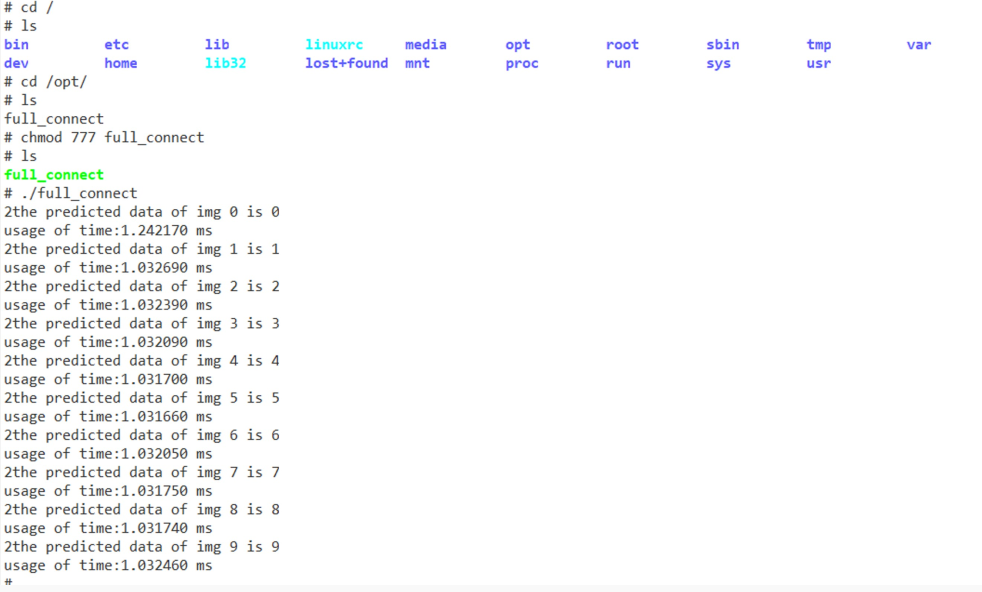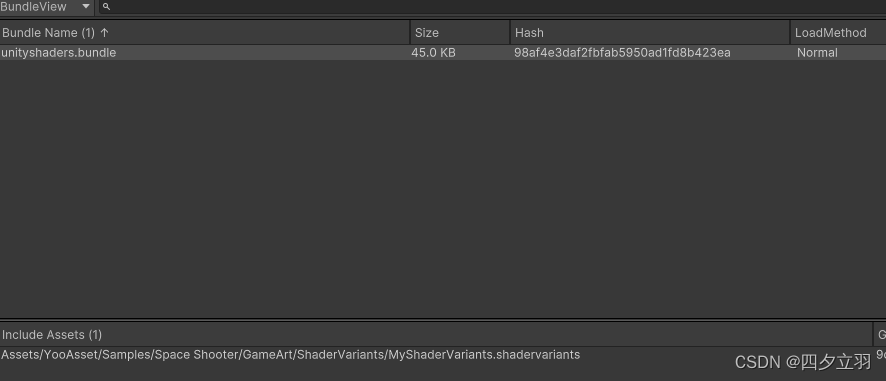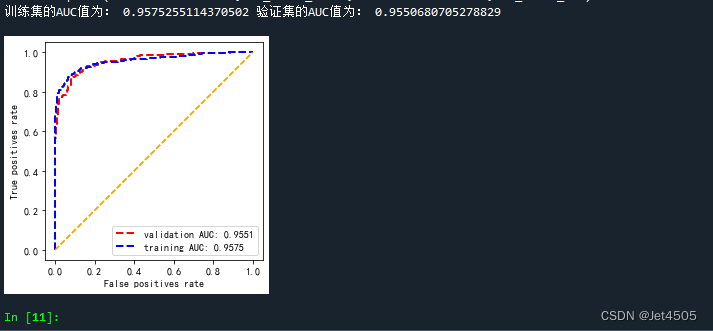编程思想
面向过程编程

面向对象编程 (oop)
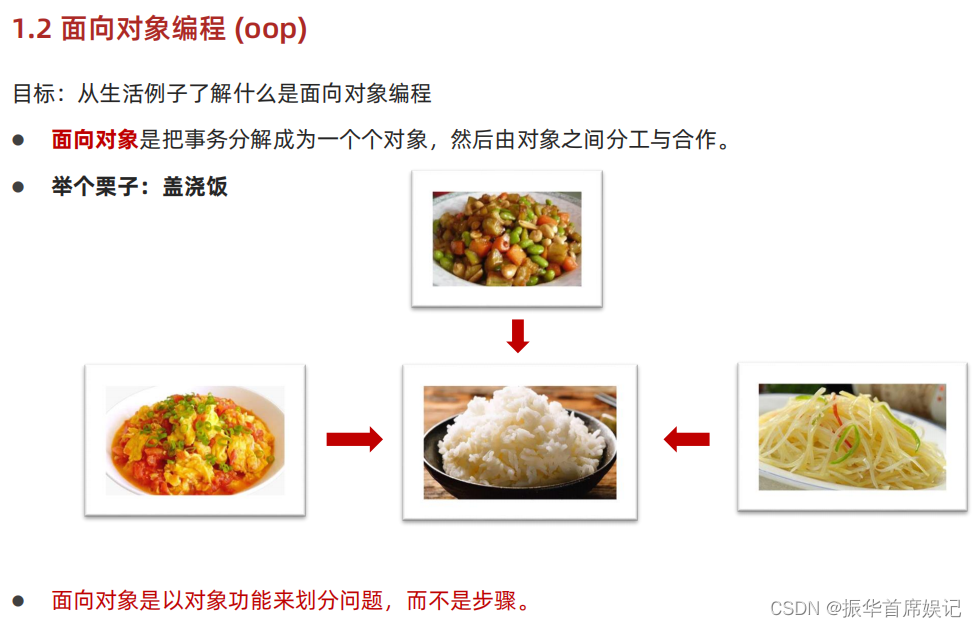

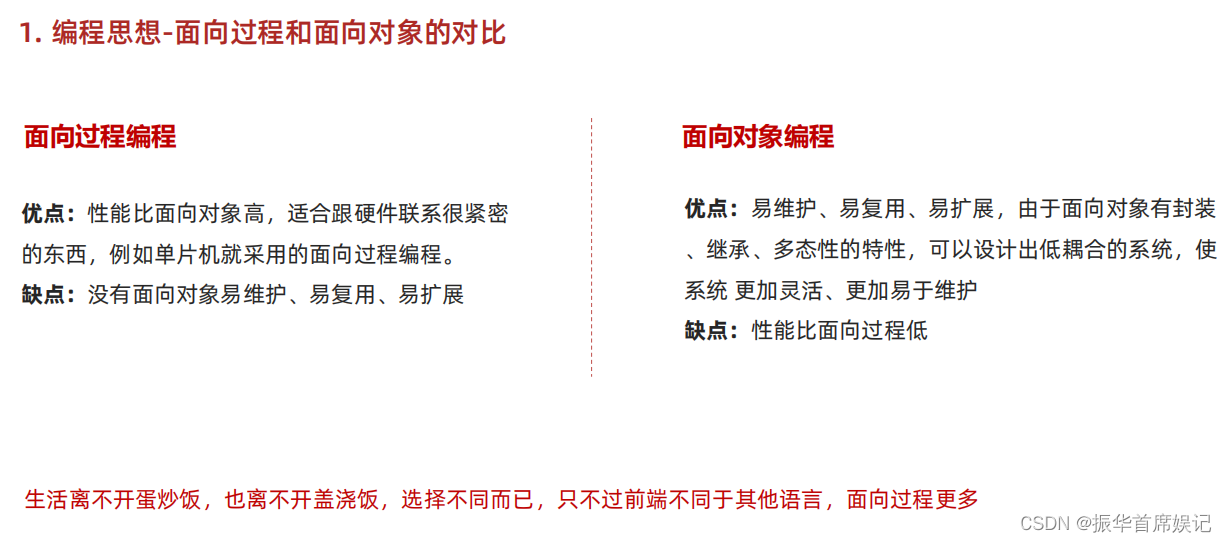
构造函数
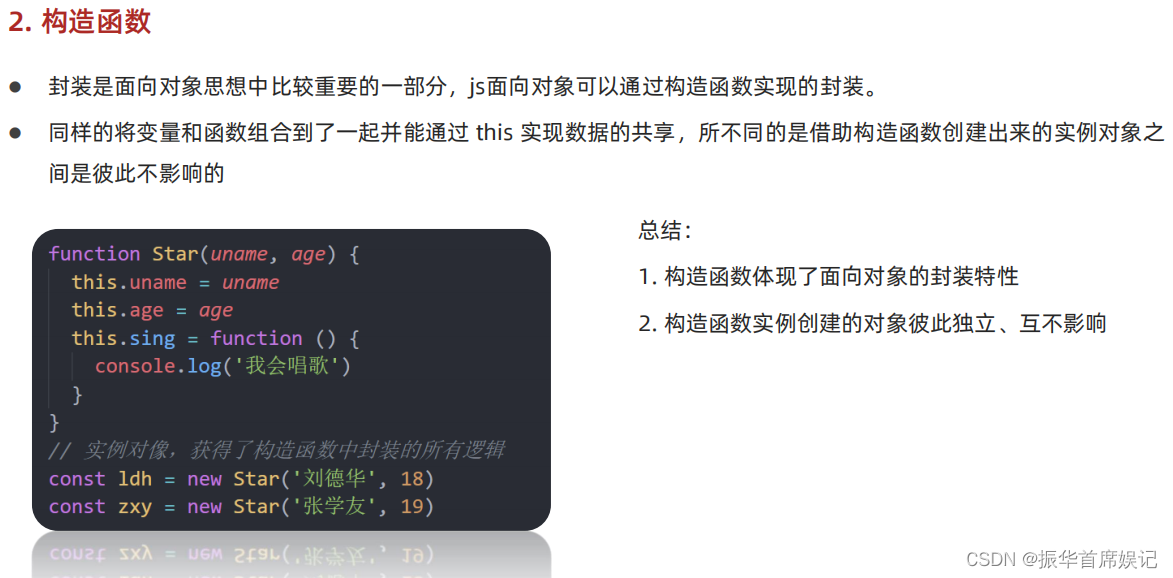
<!DOCTYPE html>
<html lang="en">
<head>
<meta charset="UTF-8">
<meta http-equiv="X-UA-Compatible" content="IE=edge">
<meta name="viewport" content="width=device-width, initial-scale=1.0">
<title>Document</title>
</head>
<body>
<script>
// 构造函数 公共的属性和方法 封装到 Star 构造函数里面了
// 1.公共的属性写到 构造函数里面
function Star(uname, age) {
this.uname = uname
this.age = age
// this.sing = function () {
// console.log('唱歌')
// }
}
// 2. 公共的方法写到原型对象身上 节约了内存
Star.prototype.sing = function () {
console.log('唱歌')
}
const ldh = new Star('刘德华', 55)
const zxy = new Star('张学友', 58)
ldh.sing() //调用
zxy.sing() //调用
// console.log(ldh === zxy) // false
console.log(ldh.sing === zxy.sing)
// console.dir(Star.prototype)
</script>
</body>
</html>
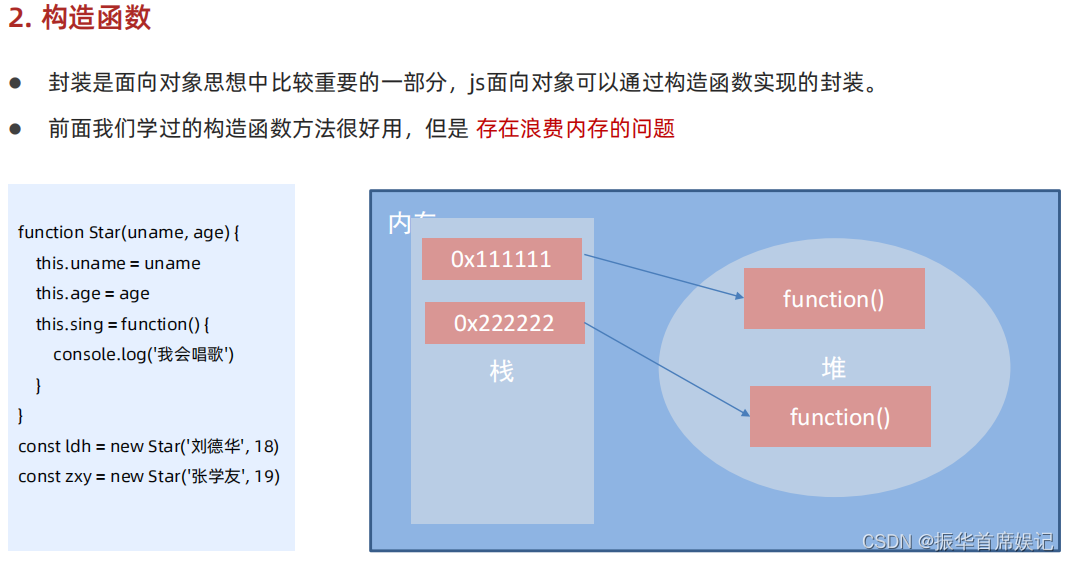
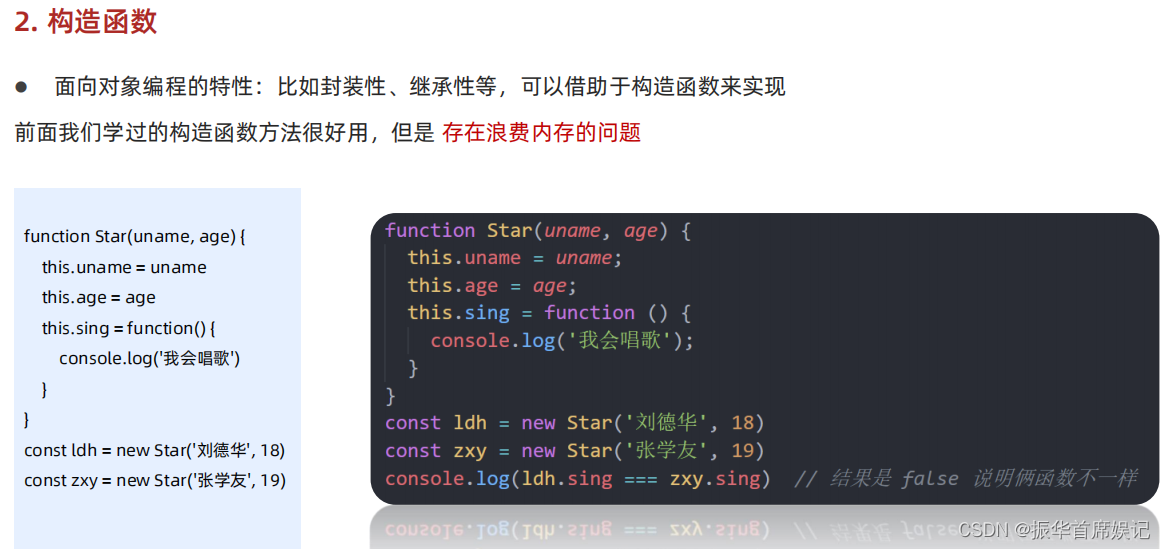
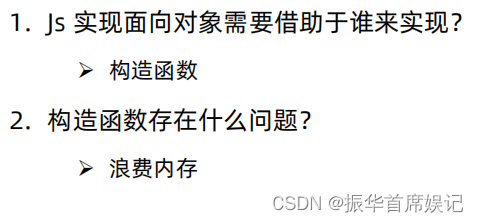
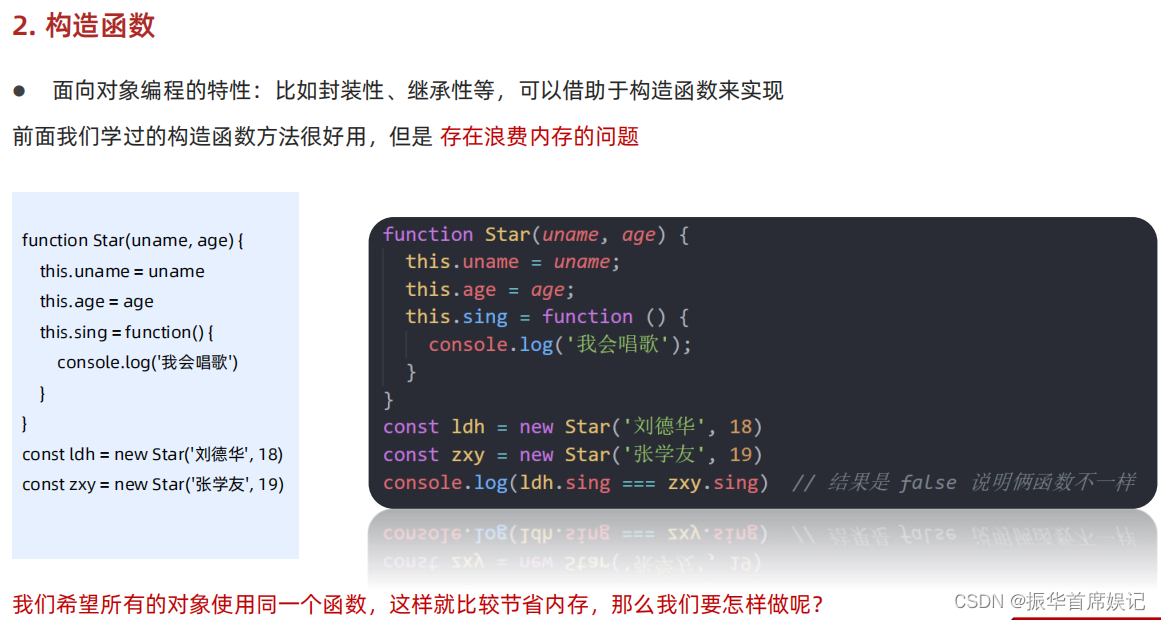
原型
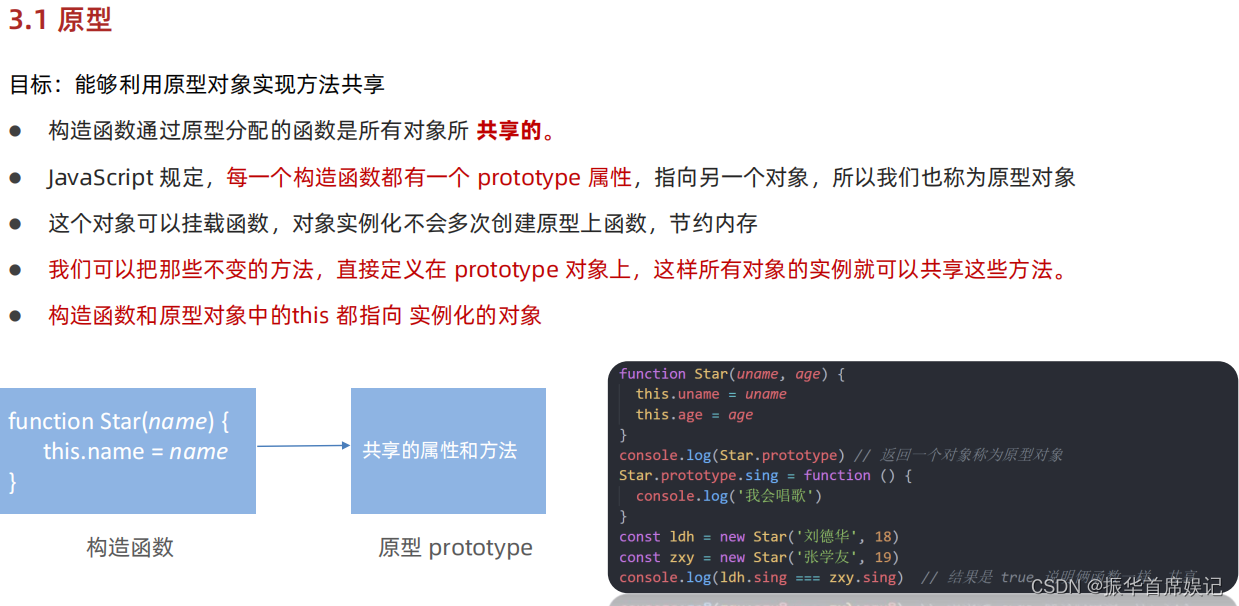
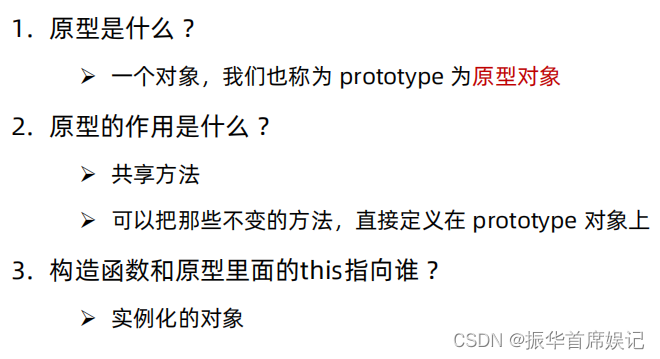
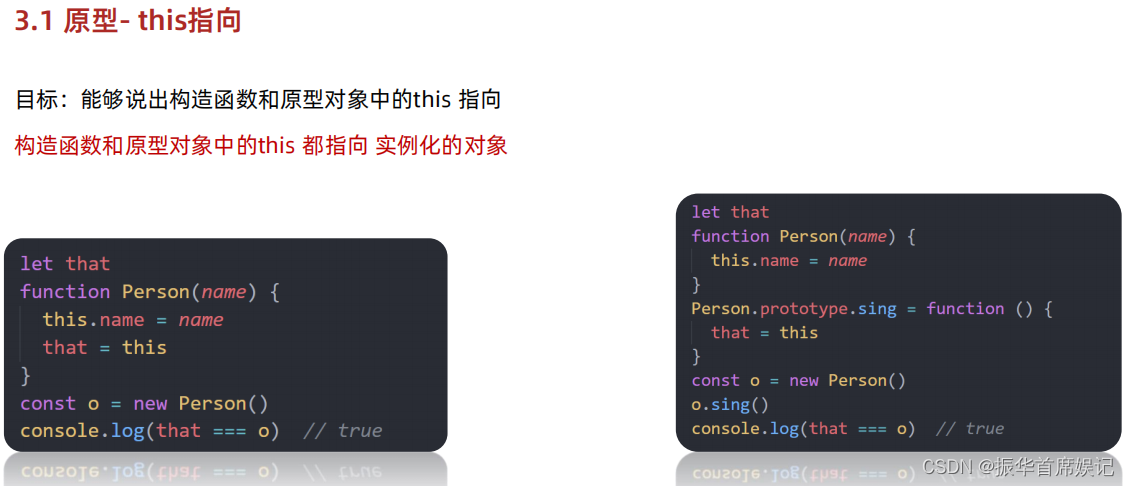
练习
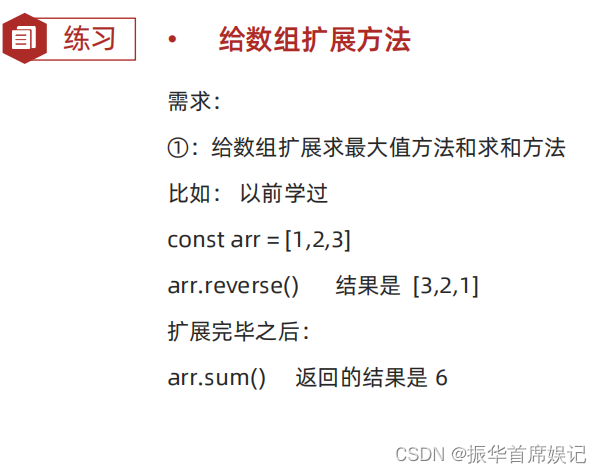
<!DOCTYPE html>
<html lang="en">
<head>
<meta charset="UTF-8">
<meta http-equiv="X-UA-Compatible" content="IE=edge">
<meta name="viewport" content="width=device-width, initial-scale=1.0">
<title>Document</title>
</head>
<body>
<script>
// 自己定义 数组扩展方法 求和 和 最大值
// 1. 我们定义的这个方法,任何一个数组实例对象都可以使用
// 2. 自定义的方法写到 数组.prototype 身上
// 1. 最大值
const arr = [1, 2, 3]
Array.prototype.max = function () {
// 展开运算符
return Math.max(...this)
// 原型函数里面的this 指向谁? 实例对象 arr
}
// 2. 最小值
Array.prototype.min = function () {
// 展开运算符
return Math.min(...this)
// 原型函数里面的this 指向谁? 实例对象 arr
}
console.log(arr.max())
console.log([2, 5, 9].max())
console.log(arr.min())
// const arr = new Array(1, 2)
// console.log(arr)
// 3. 求和 方法
Array.prototype.sum = function () {
return this.reduce((prev, item) => prev + item, 0)
}
console.log([1, 2, 3].sum())
console.log([11, 21, 31].sum())
</script>
</body>
</html>
constructor 属性
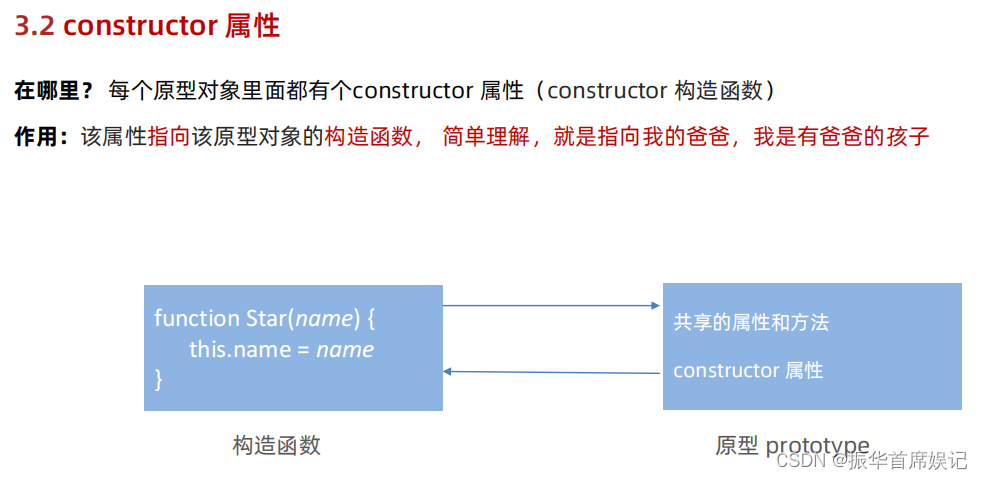
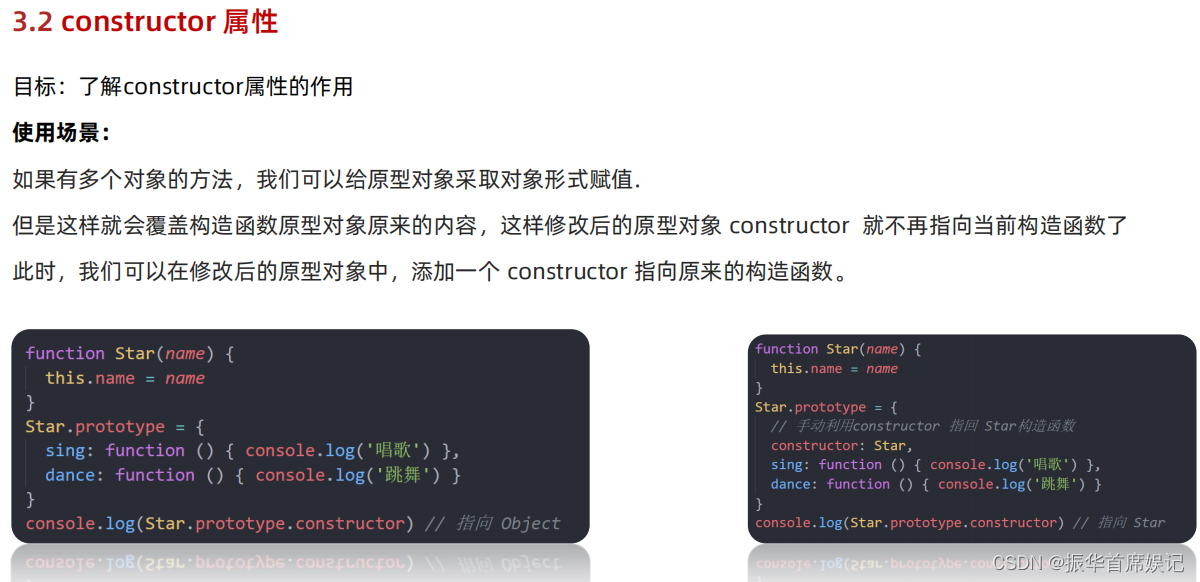
<!DOCTYPE html>
<html lang="en">
<head>
<meta charset="UTF-8">
<meta http-equiv="X-UA-Compatible" content="IE=edge">
<meta name="viewport" content="width=device-width, initial-scale=1.0">
<title>Document</title>
</head>
<body>
<script>
// constructor 单词 构造函数
// Star.prototype.sing = function () {
// console.log('唱歌')
// }
// Star.prototype.dance = function () {
// console.log('跳舞')
// }
function Star() {
}
// console.log(Star.prototype)
Star.prototype = {
// 从新指回创造这个原型对象的 构造函数
constructor: Star,
sing: function () {
console.log('唱歌')
},
dance: function () {
console.log('跳舞')
},
}
console.log(Star.prototype)
// console.log(Star.prototype.constructor)
// const ldh = new Star()
// console.log(Star.prototype.constructor === Star)
</script>
</body>
</html>

对象原型
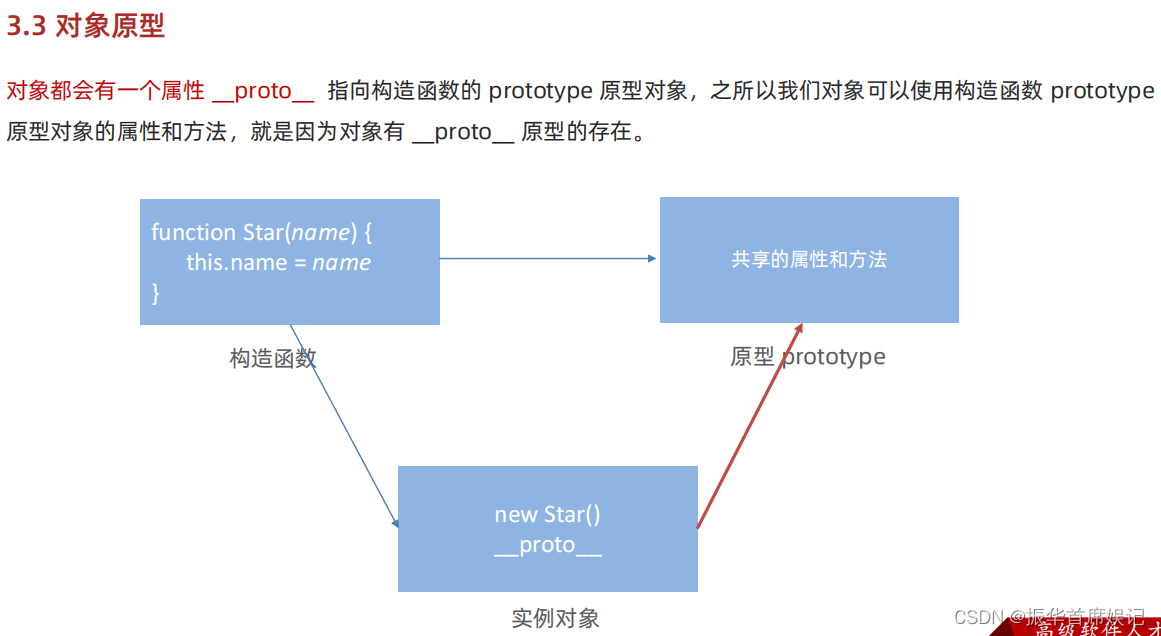
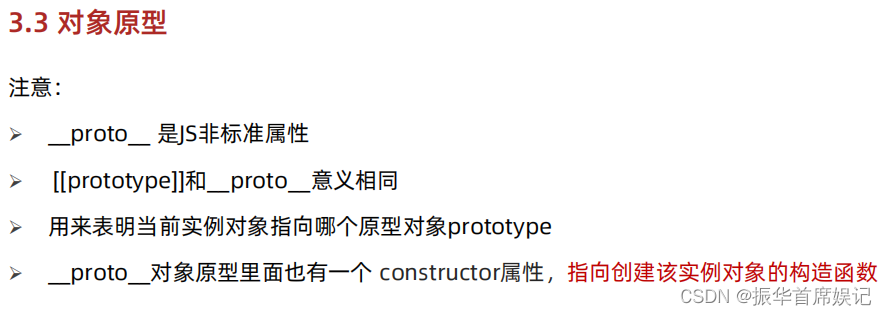
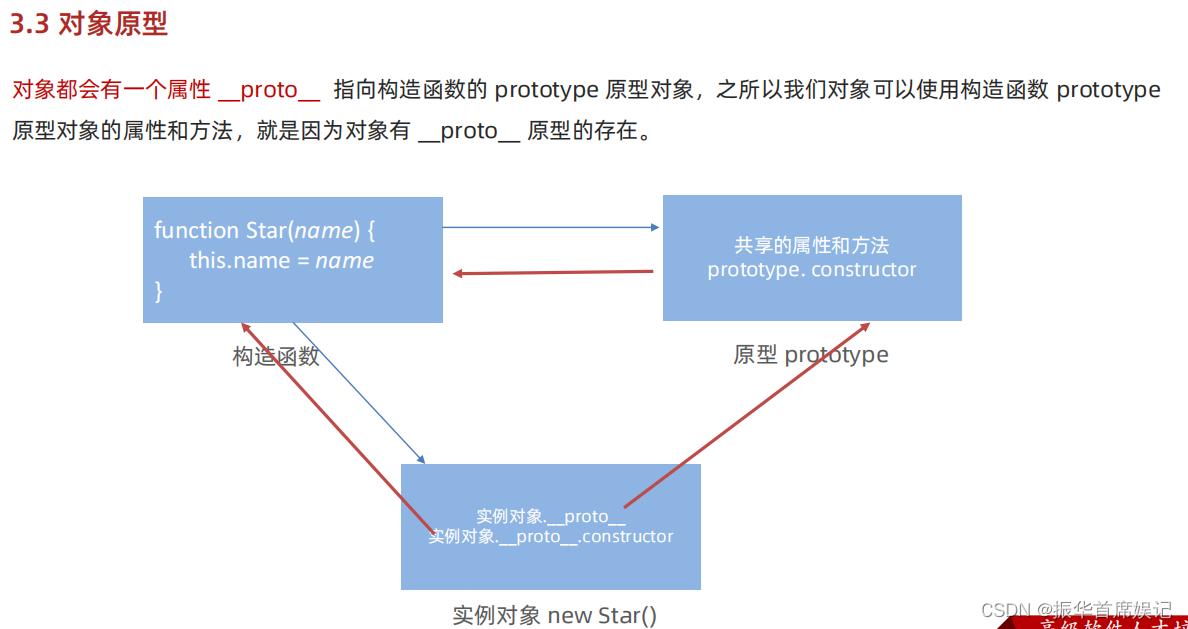
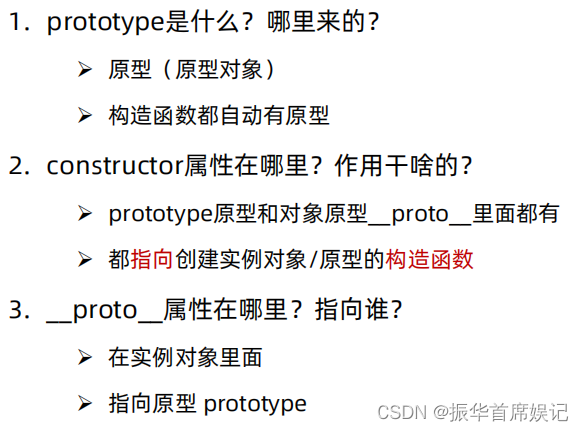
原型
原型继承
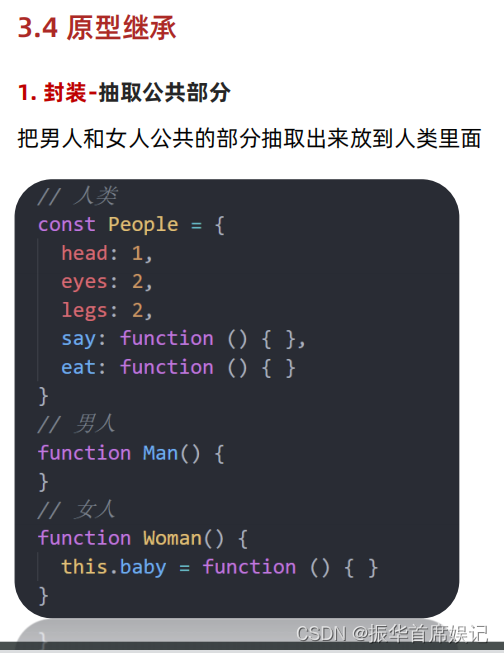
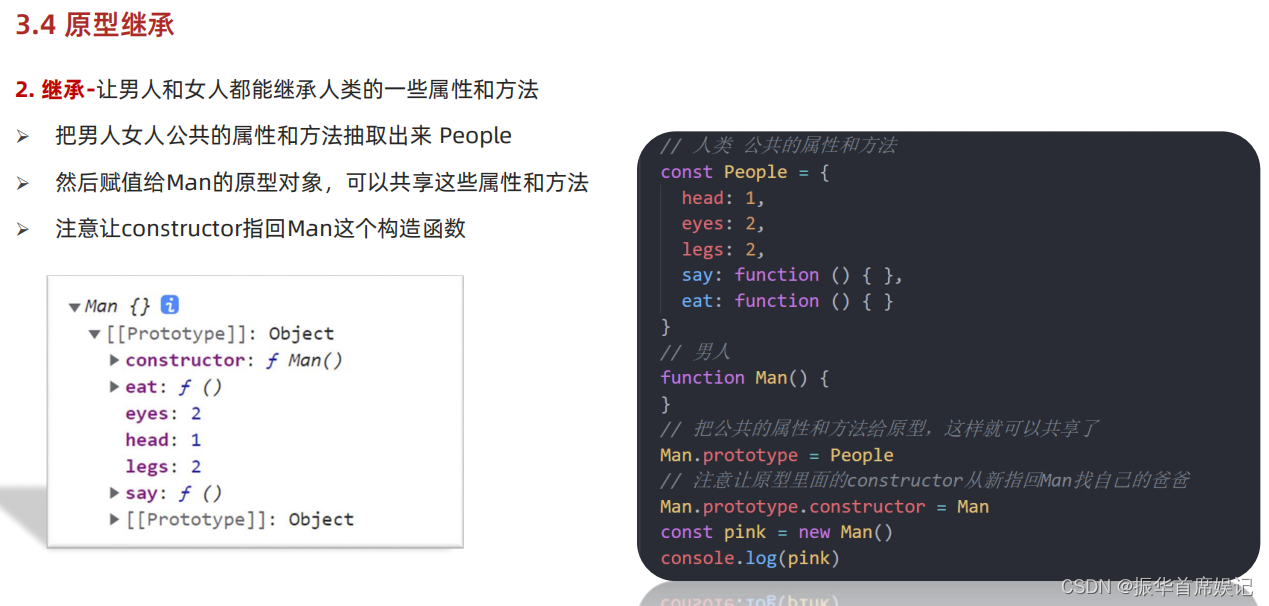
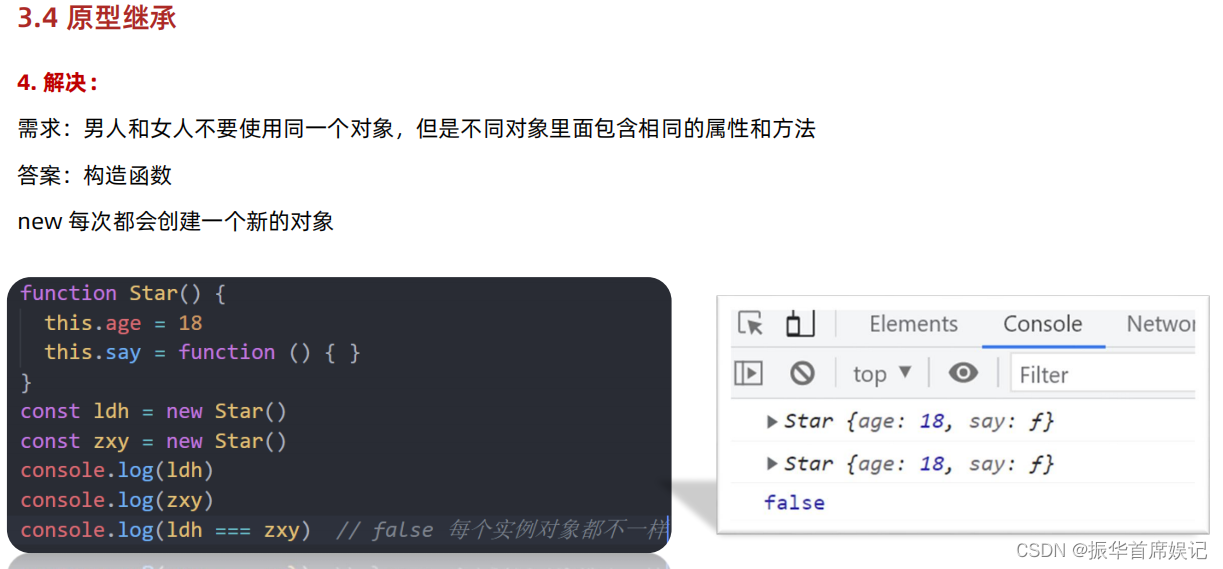
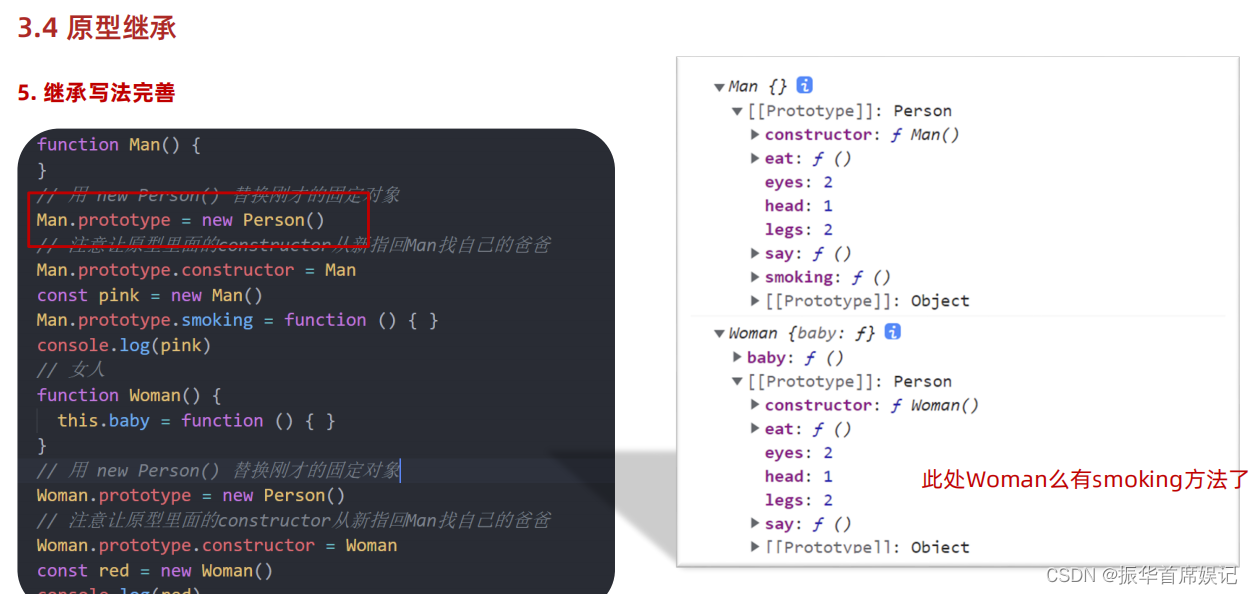
<!DOCTYPE html>
<html lang="en">
<head>
<meta charset="UTF-8">
<meta http-equiv="X-UA-Compatible" content="IE=edge">
<meta name="viewport" content="width=device-width, initial-scale=1.0">
<title>Document</title>
</head>
<body>
<script>
// 继续抽取 公共的部分放到原型上
// const Person1 = {
// eyes: 2,
// head: 1
// }
// const Person2 = {
// eyes: 2,
// head: 1
// }
// 构造函数 new 出来的对象 结构一样,但是对象不一样
function Person() {
this.eyes = 2
this.head = 1
}
// console.log(new Person)
// 女人 构造函数 继承 想要 继承 Person
function Woman() {
}
// Woman 通过原型来继承 Person
// 父构造函数(父类) 子构造函数(子类)
// 子类的原型 = new 父类
Woman.prototype = new Person() // {eyes: 2, head: 1}
// 指回原来的构造函数
Woman.prototype.constructor = Woman
// 给女人添加一个方法 生孩子
Woman.prototype.baby = function () {
console.log('宝贝')
}
const red = new Woman()
console.log(red)
// console.log(Woman.prototype)
// 男人 构造函数 继承 想要 继承 Person
function Man() {
}
// 通过 原型继承 Person
Man.prototype = new Person()
Man.prototype.constructor = Man
const pink = new Man()
console.log(pink)
</script>
</body>
</html>
原型链
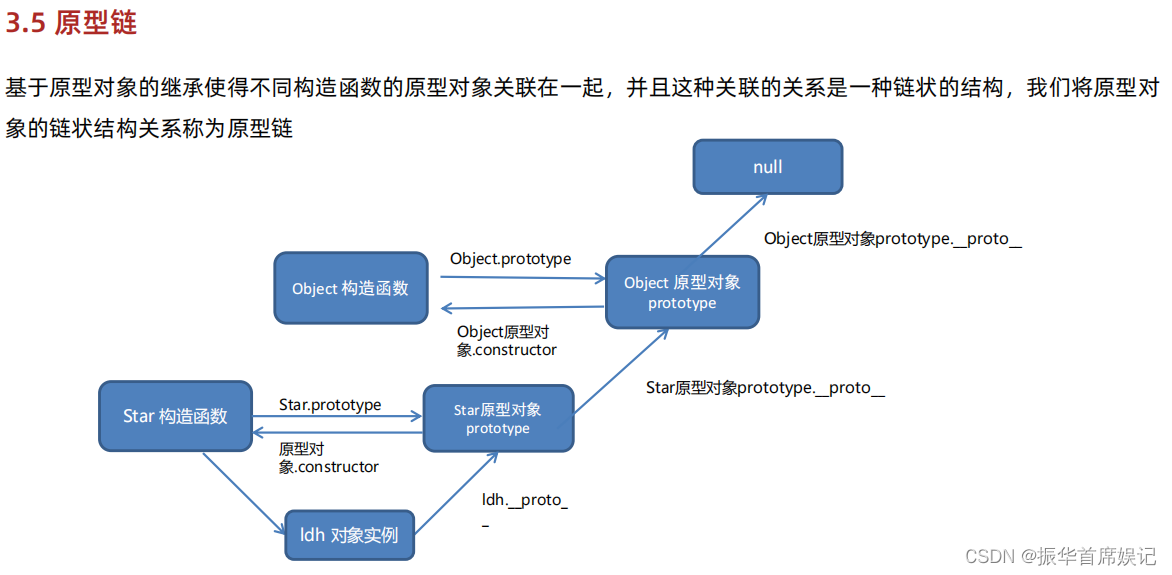
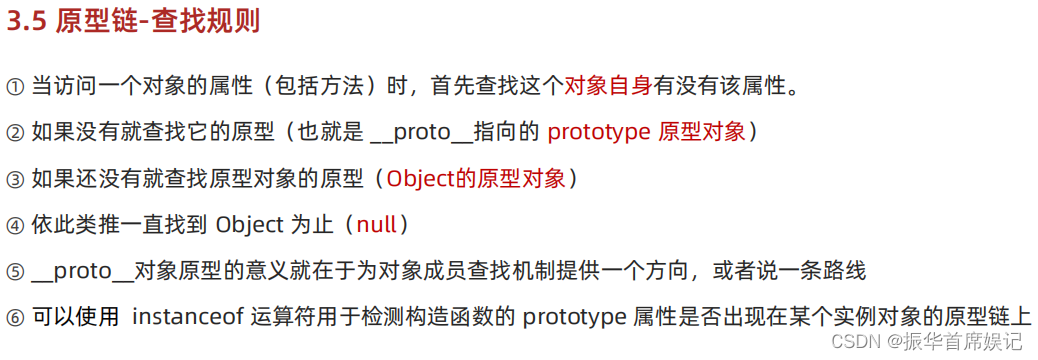
<!DOCTYPE html>
<html lang="en">
<head>
<meta charset="UTF-8">
<meta http-equiv="X-UA-Compatible" content="IE=edge">
<meta name="viewport" content="width=device-width, initial-scale=1.0">
<title>Document</title>
</head>
<body>
<script>
// function Objetc() {}
console.log(Object.prototype)
console.log(Object.prototype.__proto__)
function Person() {
}
const ldh = new Person()
// console.log(ldh.__proto__ === Person.prototype)
// console.log(Person.prototype.__proto__ === Object.prototype)
console.log(ldh instanceof Person)
console.log(ldh instanceof Object)
console.log(ldh instanceof Array)
console.log([1, 2, 3] instanceof Array)
console.log(Array instanceof Object)
</script>
</body>
</html>
